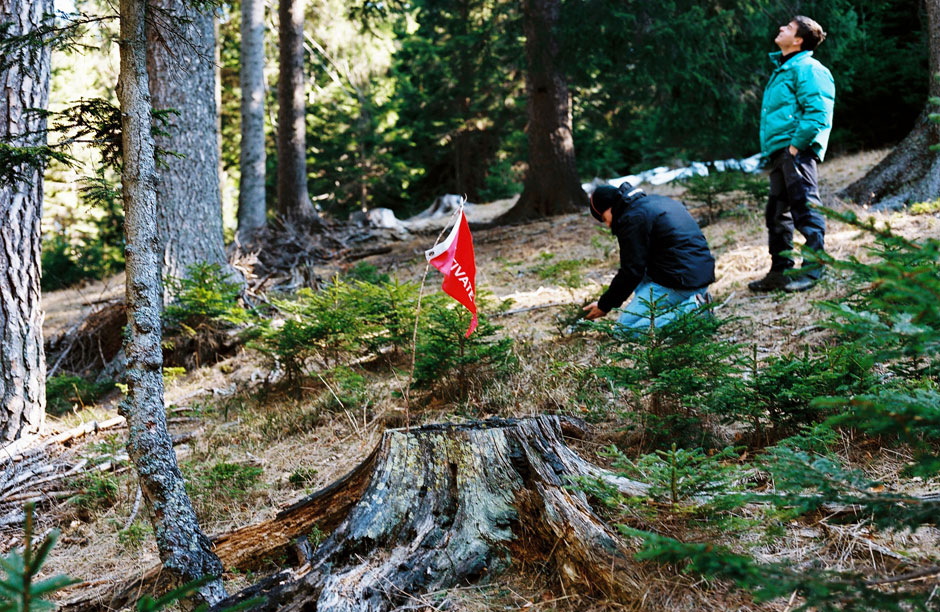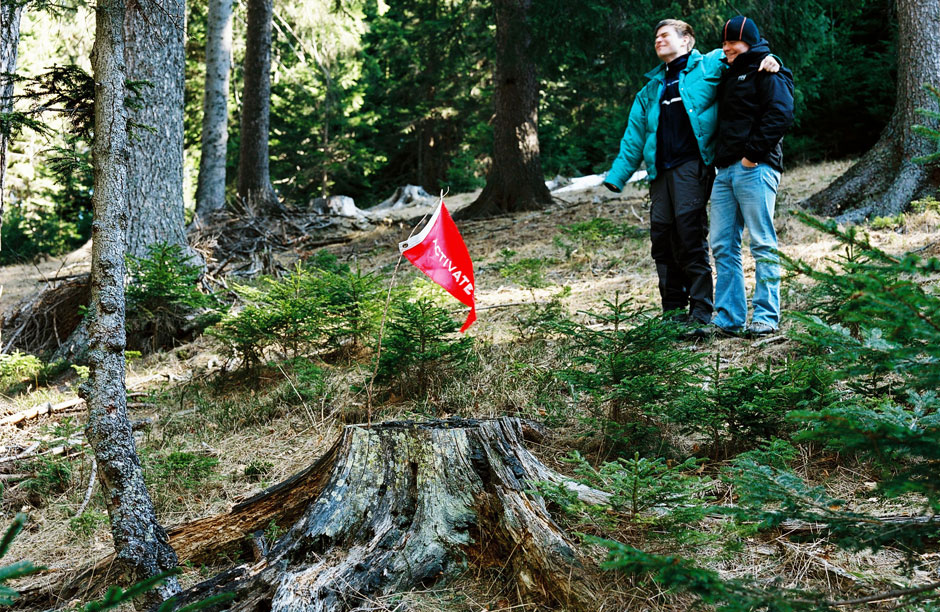PROJECT
Flag #5: Slovenia
Location: Pahernik Forests – Pohorje, Slovenia
Names: Domen Finžgar and Klemen Jančan: Forestry Students of University of Ljubljana
During the 19th Century, in a mountain range in northern Slovenia called Pohorje, there was, like in most parts of Europe, a significantly higher need for wood to suffice growing industry demands. The result was degraded forestland to a level that severely hindered the forest’s ability to regenerate.
In the 1930s Franjo Pahernik (1882-1976), a forester born in this region, started to advocate forest management based on natural processes. This principle now called “Close-to-Nature” tries to conserve forest ecosystems, while still reaching desired economic goals. Preservation, restoration and sustainability are the first priorities, while production and economic profit from forest commodities comes second. With these values in place the Pohorje forests recovered and were renamed The Pahernik Family forest after the visionary that saved them.
It’s amazing that this logical and almost simple way of dealing with degraded forestland was considered visionary due to the prevailing practice of degrading nature primarily for economic gain despite the consequences. The Close-to-Nature approach was recognized by Slovenian governing officials as a law that needed to be enforced. Today Close-to-Nature principles are mandatory for managing all forests in Slovenia.
Unfortunately, Slovenian forests make up only a small slice of the planet’s forest ecology. The largest devastation of forest landscape is happening right now in Tropical forests all over the world. We are losing the world’s lungs because not everyone in charge of our planet’s forests have recognized how vital it is to manage them sustainably. Unlike temperate forests, damage to tropical forestland is almost irreversible because of the thin soil layers and faster erosion rate. The use of sustainable models for managing those forests is therefore even more urgent!
Forest management based on natural processes is also very challenging, because one must know many things about forest ecosystems before they can take action. Only with knowledge about soil, dendrology, zoology, climatology…can there even begin to be an understanding of how this complex ecosystem works. Without the basic knowledge about ecosystems in general, every action in the environment of any kind (even cities) is a risky decision.
Spreading this “basic” knowledge is done mostly on university level, so it unfortunately does not reach many people. Keeping that in mind I think that one of our responsibilities as forestry students is also to activate and start spreading the word to a wider audience.
For more information about Forest management based on natural processes visit ProSilva website. We also invite you to come learn in Slovenia!

